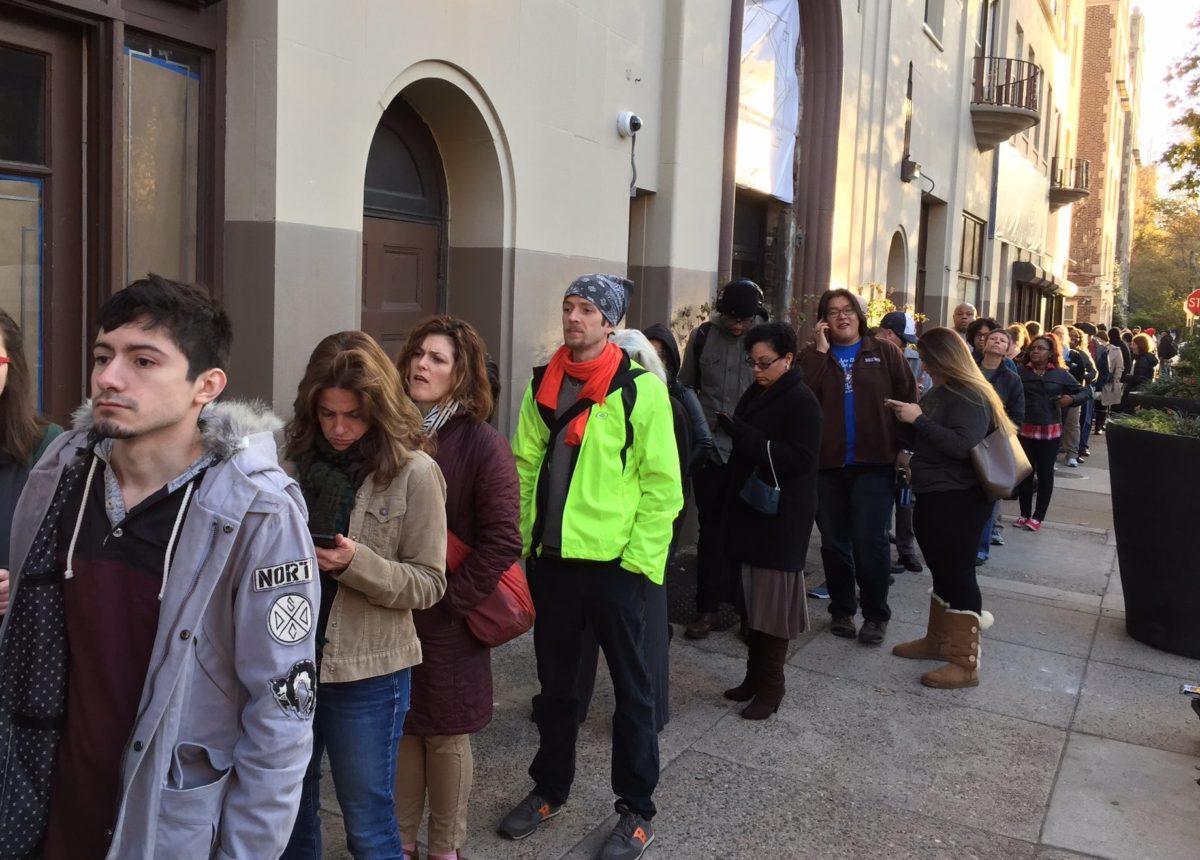
This editorial article is a part of Tech + Government Month 2022 of Technical.ly's editorial calendar. This month’s theme is underwritten by Spotify. This story was independently reported and not reviewed by Spotify before publication.
The West Chester-based technologist’s interest in poll work started after marrying into a political family. His wife’s mom was a Pennsylvania state representative, which gave him a peek into the realities of the voting process.
Young told Technical.ly he first signed on to be a judge of elections a few years ago because he was interested in making the in-person voting process smoother. As voting center staff numbers shrunk during the pandemic, Young spread the word to his coworkers at Think Company, the Center City experience design and software development firm where he is the director of technology.
“When you have a whole company full of content strategists and people whose career is about streamlining the flow of getting a job done, it turns out those folks have exactly the right background to figure out, OK, well, where are the pain points in this process?” he said. “And where can we help smooth things out?”
Poll work is surprisingly relevant to many technologists’ jobs, Young’s case goes. For example, data scientists and designers will see a flow of information between systems and use their knowledge to make is more streamlined.
“The voting process is a very complicated thing [that] contains all these little bits,” he said. “So no matter what kind of technologist you are, you’ll be like, ‘Oh, I know this. I can help with this.’ And for technologists, that’s a fun thing. That’s a very empowering feeling.”
Besides, he said, many of the people who run polling sites have been doing it for a long time, and more are needed — people who are smart, organized and want to help make the system better. And polling centers need people who understand the technology, both to reassure voters that everything is running smoothly, but also to dig in and improve parts of the process that need work.

Voters line up outside a West Philadelphia polling place, Nov. 8, 2016. (Photo by Julie Zeglen)
Over the past four years, Young said, he’s been able to recruit about 25 people from Think to be poll workers. He and his colleagues also worked on a webinar in 2020 focused on service design for voting that leadership at the company gave everyone time to complete. Backing all of this up, Think’s employees get up to four hours of PTO on election day to vote.
How to recruit technologists to work the polls, specifically? Identify solvable problems and ask them to help. An example of using service design for voting came from one of Young’s coworkers who used color-coded balloons to represent multiple polling precincts in one gym.
“Color-coded balloons is not technology. But on the other hand, oh, it absolutely is,” he said. “It works hand in hand with all the other systems for processing all the information.”
Young said he and his coworkers are involved in figuring out where in-person voting and mail in voting intersect and how they can streamline those two processes to push back against policies or practices that make voting harder. After all: “Voter suppression looks like making voting incrementally harder, incrementally slower, incrementally more confusing.”
“The goal of getting involved within polling is to keep polling boring. That is absolutely the goal,” he said of keeping the process streamlined. “You’ll be working with a lot of smart, detail oriented people who are trying to do something important in a collaborative way.”
Anyone in Philadelphia county who is looking to get involved as a poll worker can visit the Committee of Seventy, an election watchdog group. Other counties can search for their county’s voter services information. (While we’re at it, here’s an FAQ roundup about voting in Pennsylvania.)
Sarah Huffman is a 2022-2024 corps member for Report for America, an initiative of The Groundtruth Project that pairs young journalists with local newsrooms. This position is supported by the Lenfest Institute for Journalism.Join the conversation!
Find news, events, jobs and people who share your interests on Technical.ly's open community Slack

Philly daily roundup: East Market coworking; Temple's $2.5M engineering donation; WITS spring summit

Philly daily roundup: Jason Bannon leaves Ben Franklin; $26M for narcolepsy treatment; Philly Tech Calendar turns one

Philly daily roundup: Closed hospital into tech hub; Pew State of the City; PHL Open for Business


